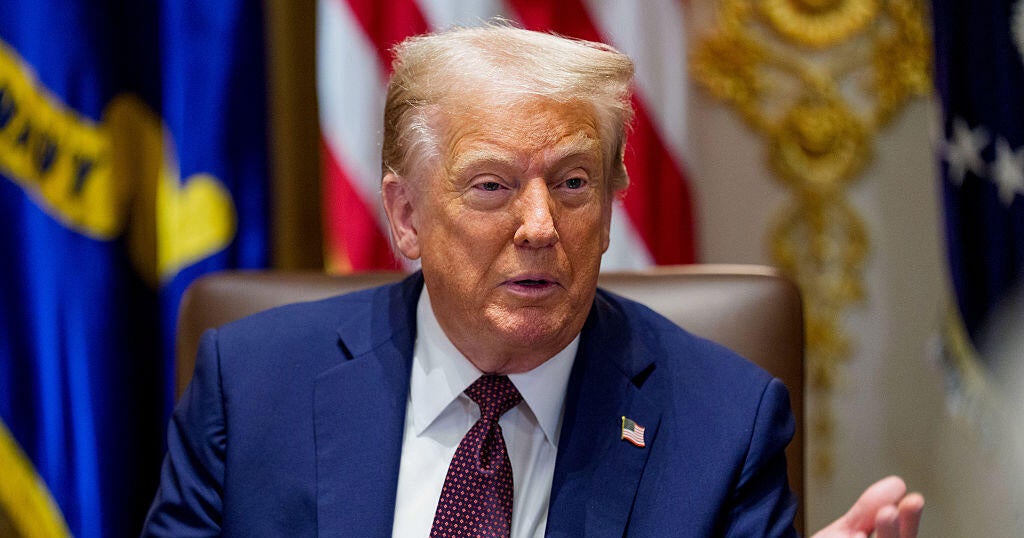Analysis: Trump’s Move to Claw Back Foreign Aid Stirs Bipartisan Concerns and Constitutional Questions
In a recent controversial move, President Donald Trump has proposed to retract nearly $5 billion in foreign aid that Congress had already approved. This initiative deploys an infrequently used strategy known as a “pocket rescission,” which allows the President to withhold funding without requiring the explicit consent of Congress.
President Trump’s plan was unfolded through a communication to House Speaker Mike Johnson, which was publicly shared by the White House Office of Management and Budget (OMB) on the social media platform X. The proposal includes a total of 15 rescissions affecting the budget authority and targets expenditures towards the State Department, the U.S. Agency for International Development (USAID), and various international development assistance programs.
While the President has previously shown a propensity to reconsider foreign aid sanctioned by Congress — with Congress conforming to some of these cuts as recently as July — this latest attempt marks a significant escalation. The OMB defends this move as a legitimate exercise of presidential powers.
The Impoundment Control Act: A Double-edged Sword
This action by the White House has resurrected debates surrounding the Impoundment Control Act (ICA) of 1974, which was initially instituted to curtail the executive branch’s ability to disregard funding initiatives passed by Congress. Under the Act, any president can suggest rescissions, or funding cuts, to Congress, which then has 45 legislative days to respond. If Congress does not act within this period, the funds revert to the Treasury. However, if these proposals are submitted late in the fiscal year, as is the case here (with the current fiscal year ending on September 30), the delayed response could result in the expiration of the funds.
Historically, the most recent instance of a pocket rescission dates back to 1977, highlighting the rarity of such maneuvers. The Government Accountability Office (GAO), the nonpartisan watchdog agency of Congress, has offered guidance on these matters in the past and maintains a critical stance on unilateral executive rescissions.
Congressional Backlash and Legal Scrutiny
The reaction from Capitol Hill has been swift and bipartisan. Senator Susan Collins, a Republican from Maine and chair of the powerful Senate Appropriations Committee, condemned the President’s unilateral action to halt the spending of duly approved funds. Highlighting a GAO conclusion that such rescissions are unlawful under the ICA, Collins emphasized, “Article I of the Constitution makes clear that Congress has the responsibility for the power of the purse.”
In the backdrop of these developments, legal experts refer to a 2018 GAO decision that stressed the ICA “does not permit the impoundment of funds through their date of expiration.” OMB officials have counterpointed this with a reference to a 1975 GAO decision which suggested that uncommitted funds in proposed rescissions might lapse at fiscal year-end under the ICA, a viewpoint that hints at unresolved statutory interpretations.
Polarized Political Landscape and Threat of Government Shutdown
The adoption of a pocket rescission not only exacerbates the friction between the executive and legislative branches but also augments the specter of a potential government shutdown as the end of September approaches — a situation requiring bipartisan collaboration to pass spending bills in the Senate.
Senate Minority Leader Chuck Schumer from New York lambasted the decision, indicating a strenuous legislative session ahead. He criticized the move as detrimental to bipartisan cooperation, underscoring the Democrats’ readiness “to work with anyone to help American families, lower health care costs and secure our communities,” while simultaneously warning that Democrats would not support unilateral and destructive Republican measures.
Conclusion
President Trump’s decision to employ a pocket rescission to pull back nearly $5 billion in foreign aid underscores a critical juncture in U.S. governance. This action not only challenges the statutory boundaries dictated by the Impoundment Control Act but also tests the foundational principles of Congressional power over national finances enshrined in the Constitution. With legal and ethical questions in abundant supply, the move sets the stage for potentially profound shifts in the dynamics of American political governance and fiscal management. Further, the implications of this decision — ranging from its impact on international relationships to its legal consequences and influence on upcoming political dynamics including the potential government shutdown — are set to unfold as stakeholders from various quarters weigh in.
This incident represents, yet again, the complex interplay between different branches of government, and the continuing evolution of the interpretation and application of federal laws governing budgetary controls.









